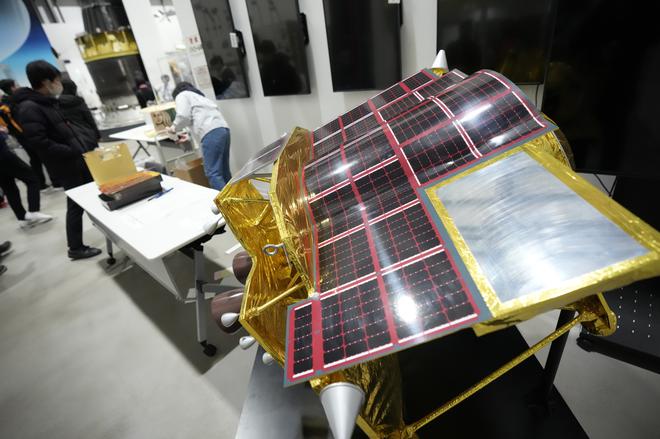Japan gave the green light for its spacecraft to make a "precision" landing on the Moon on Friday, its bid to become the world's fifth country to achieve a moonshot and revitalise a space programme that has suffered a wave of recent setbacks.
The Japan Aerospace Exploration Agency (JAXA) said the Smart Lander for Investigating Moon (SLIM) was en route to 15 km (9 miles) above the Moon's surface, where it will start an autonomous 20-minute descent from midnight on Saturday (1500 GMT Friday).
Dubbed the "Moon sniper", SLIM is attempting to land within 100 metres (328 feet) of its target, versus the conventional accuracy of several kilometres.
JAXA says this landing technology will become a powerful tool in future exploration of hilly Moon poles seen as a potential source of oxygen, fuel and water — factors necessary to sustain life.
Also Read | Why is Japan’s ‘moon sniper’ landing mission important?
JAXA will broadcast the touchdown on its YouTube channel, but has said it will take up to a month to verify whether SLIM had achieved the high-precision goals.
Japan is increasingly looking to play a bigger role in space, partnering with ally the United States to counter China. Japan is also home to several private-sector space start-ups and the JAXA aims to send an astronaut to the Moon as part of NASA's Artemis programme in the next few years.

But the Japanese space agency has recently faced multiple setbacks in rocket development, including the launch failure in March of its new flagship rocket H3. The failure caused widespread delays in Japan's space missions, including SLIM and a joint lunar exploration with India, which in August made a historic touchdown on the Moon's south pole.
JAXA has twice landed on small asteroids, but a Moon landing is much more difficult due to its gravity. Three lunar missions by Japanese start-up ispace, Russia's space agency and American company Astrobotic have failed in the past year.
How Japan’s moon-landing attempt in January will affect Chandrayaan 4 | Explained
Only four nations — the former Soviet Union, the United States, China and India — and no private company have achieved a soft landing on the Moon's surface.
SLIM's successful touchdown and demonstration of the precision landing "will help Japan to keep its technology advanced at a very high level in the world," Ritsumeikan University professor Kazuto Saiki said.
Saiki developed SLIM's near-infrared camera that will analyse Moon rocks after the touchdown.
On landing, SLIM will also deploy two mini-probes — a hopping vehicle as big as a microwave oven and a baseball-sized wheeled rover — that will take pictures of the spacecraft.







